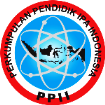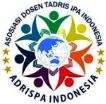Enhancing Students' Critical Thinking Skills Through Problem-Based Learning Values Clarification Technique (PBLVCT) on The Human Respiration System Concept
Abstract
The purpose of this research is to develop a Problem-Based Learning Values Clarification Technique (PBLVCT) model for teaching the human respiration system and to evaluate its effectiveness in enhancing students' critical thinking skills. The study employed a quasi-experimental method with a pretest-posttest control group design. Two groups, selected through convenience sampling, were used as research samples. Data were collected using pre-tests and post-tests in both groups, and analyzed using the Paired Sample T-test to identify differences in critical thinking skills between the groups after the intervention. Additionally, the N-Gain test was used to assess improvements in critical thinking skills. During the learning process, students were supported with electronic Learner Worksheets (e-LKPD) to facilitate adherence to the learning model's syntax. The results indicated a significant increase in students' critical thinking skills following the implementation of the PBLVCT model, with the experimental class showing a higher N-Gain value compared to the control class. Therefore, teaching Biology with an integrated character values through the PBLVCT model can enhance students' critical thinking skills, enabling them to address social issues in their environment and develop sustainable solutions that benefit both themselves and their communities. This research is expected to contribute to the development of teaching methods and curricula, particularly in enhancing and innovating the implementation of character education in schools.
Keywords: Problem Based Learning Values Clarification Technique (PBLVCT) model, Critical thinking skills, Respiration system in humans.
Full Text:
PDFReferences
The purpose of this research is to develop a Problem-Based Learning Values Clarification Technique (PBLVCT) model for teaching the human respiration system and to evaluate its effectiveness in enhancing students' critical thinking skills. The study employed a quasi-experimental method with a pretest-posttest control group design. Two groups, selected through convenience sampling, were used as research samples. Data were collected using pre-tests and post-tests in both groups, and analyzed using the Paired Sample T-test to identify differences in critical thinking skills between the groups after the intervention. Additionally, the N-Gain test was used to assess improvements in critical thinking skills. During the learning process, students were supported with electronic Learner Worksheets (e-LKPD) to facilitate adherence to the learning model's syntax. The results indicated a significant increase in students' critical thinking skills following the implementation of the PBLVCT model, with the experimental class showing a higher N-Gain value compared to the control class. Therefore, teaching Biology with an integrated character values through the PBLVCT model can enhance students' critical thinking skills, enabling them to address social issues in their environment and develop sustainable solutions that benefit both themselves and their communities. This research is expected to contribute to the development of teaching methods and curricula, particularly in enhancing and innovating the implementation of character education in schools.
Keywords: Problem Based Learning Values Clarification Technique (PBLVCT) model, Critical thinking skills, Respiration system in humans.
DOI: http://dx.doi.org/10.24014/jnsi.v6i2.31382
Refbacks
- There are currently no refbacks.

Journal of Natural Science and Integration
E-ISSN: 2620-5092 P-ISSN: 2620-4967
Published By:
Department of Science Education, Faculty of Education and Teacher Training,
State Islamic University of Sultan Syarif Kasim Riau, Indonesia
Mailing Address:
Jl. H.R Soebrantas Km. 15 No. 155
Kelurahan Simpang Baru
Kecamatan Tuah Madani, Pekanbaru, Riau, Indonesia
Email: jnsi.tadrisipa@uin-suska.ac.id
Indexed By:
Journal of Natural Science and Integration is licensed under a Creative Commons Attribution 4.0 International License.


_-_Copyy2.png)






.jpg)
.png)
.jpg)
.jpg)




